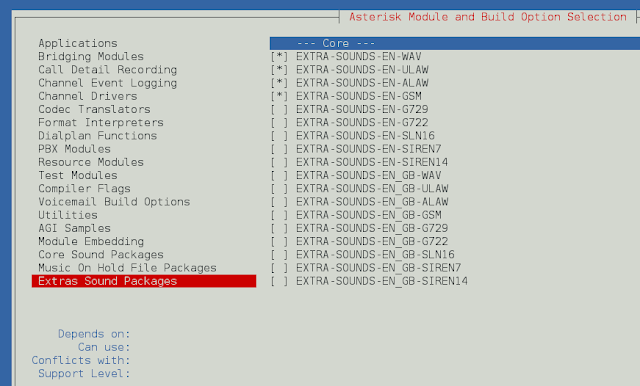Pandas Dataframe provides the freedom to change the data type of column values. We can change them from Integers to Float type, Integer to Datetime, String to Integer, Float to Datetime, etc. For converting float to DateTime we use pandas.to_datetime() function and following syntax is used :
Syntax: pandas.to_datetime(arg, errors=’raise’, dayfirst=False, yearfirst=False, utc=None, box=True, format=None, exact=True, unit=None, infer_datetime_format=False, origin=’unix’, cache=False)
Example 1: Converting one column from float to ‘yyyymmdd’ format using pandas.to_datetime()
Python3
# importing pandas libraryimport pandas as pd # Initializing the nested list # with Data setplayer_list = [[20200112.0,'Mathematics'], [20200114.0,'English'], [20200116.0,'Physics'], [20200119.0,'Chemistry'], [20200121.0,'French'], [20200124.0,'Biology'], [20200129.0,'Sanskrit']] # creating a pandas dataframedf = pd.DataFrame(player_list,columns=['Dates','Test']) # printing dataframe print(df)print() # checking the type print(df.dtypes) |
Output:
After changing the datatype.
Python3
# converting the float to datetime format df['Dates'] = pd.to_datetime(df['Dates'], format='%Y%m%d') # printing dataframe print(df)print() print(df.dtypes) |
Output:
In the above example, we change the data type of column ‘Dates‘ from ‘float64‘ to ‘datetime64[ns]‘ type.
Example 2: If the data frame column is in yymmdd format and we have to convert it to yyyymmdd format
Python3
# importing pandas libraryimport pandas as pd # Initializing the nested list with # Data setplayer_list = [[180112.0,'Mathematics'], [180114.0,'English'], [180116.0,'Physics'], [180119.0,'Chemistry'], [180121.0,'French'], [180124.0,'Biology'], [180129.0,'Sanskrit']] # creating a pandas dataframedf = pd.DataFrame(player_list,columns=['Dates','Test']) # printing dataframe print(df)print() # checking the type print(df.dtypes) |
Output:
After changing the datatype.
Python3
# converting the float to datetime format df['Dates'] = pd.to_datetime(df['Dates'], format='%y%m%d') # printing dataframe print(df)print() print(df.dtypes) |
Output:
In the above example, we change the data type of column ‘Dates‘ from ‘float64‘ to ‘datetime64[ns]‘ and format from ‘yymmdd‘ to ‘yyyymmdd‘.
Example 3: When we have to convert the float column to Date and Time format
Python3
# importing pandas libraryimport pandas as pd # Initializing the nested list with Data setplayer_list = [[20200112082520.0,'Mathematics'], [20200114085020.0,'English'], [20200116093529.0,'Physics'], [20200119101530.0,'Chemistry'], [20200121104060.0,'French'], [20200124113541.0,'Biology'], [20200129125023.0,'Sanskrit']] # creating a pandas dataframedf = pd.DataFrame(player_list,columns=['Dates','Test']) # printing dataframe print(df)print() # checking the type print(df.dtypes) |
Output:
After changing the datatype.
Python3
# converting the float to datetime format df['Dates'] = pd.to_datetime(df['Dates'], format='%Y%m%d%H%M%S') # printing dataframe print(df)print() print(df.dtypes) |
Output:
In the above example, we change the data type of column ‘Dates‘ from ‘float64‘ to ‘datetime64[ns]‘ and format to Date and Time
Example 4: Converting multiple columns from float to ‘yyyymmdd‘ format using pandas.to_datetime()
Python3
# importing pandas libraryimport pandas as pd # Initializing the nested list with Data setplayer_list = [[20200112.0,'Mathematics',20200113.0], [20200114.0,'English',20200115.0], [20200116.0,'Physics',20200117.0], [20200119.0,'Chemistry',20200120.0], [20200121.0,'French',20200122.0], [20200124.0,'Biology',20200125.0], [20200129.0,'Sanskrit',20200130.0]] # creating a pandas dataframedf = pd.DataFrame(player_list,columns=['Starting_Date','Test','Ending_Date']) # printing dataframe print(df)print() # checking the type print(df.dtypes) |
Output:
After changing the datatype.
Python3
# converting the float to datetime format # in multiple columnsdf['Starting_Date'] = pd.to_datetime(df['Starting_Date'], format='%Y%m%d') df['Ending_Date'] = pd.to_datetime(df['Ending_Date'], format='%Y%m%d') # printing dataframe print(df)print() print(df.dtypes) |
Output:
In the above example, we change the data type of columns ‘Starting_Date‘ and ‘Ending_Date‘ from ‘float64‘ to ‘datetime64[ns]‘ type.












